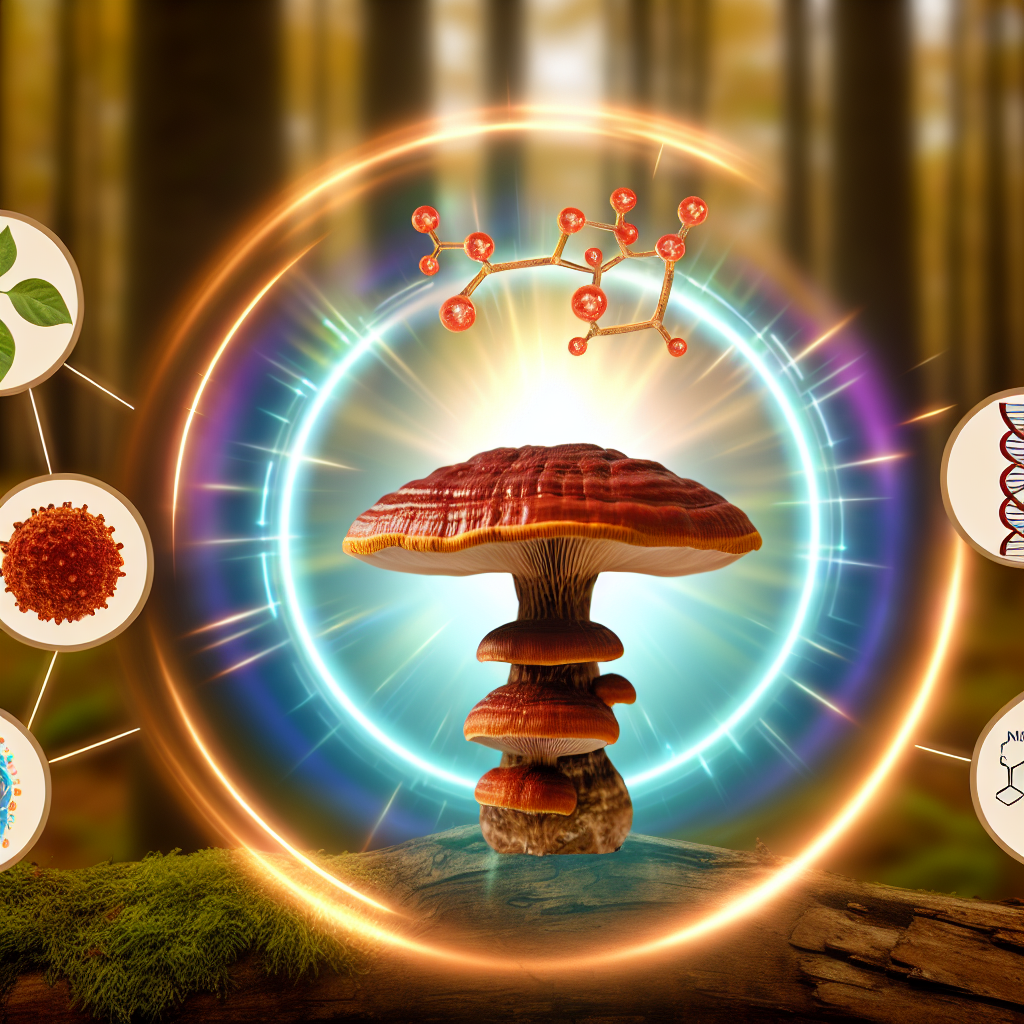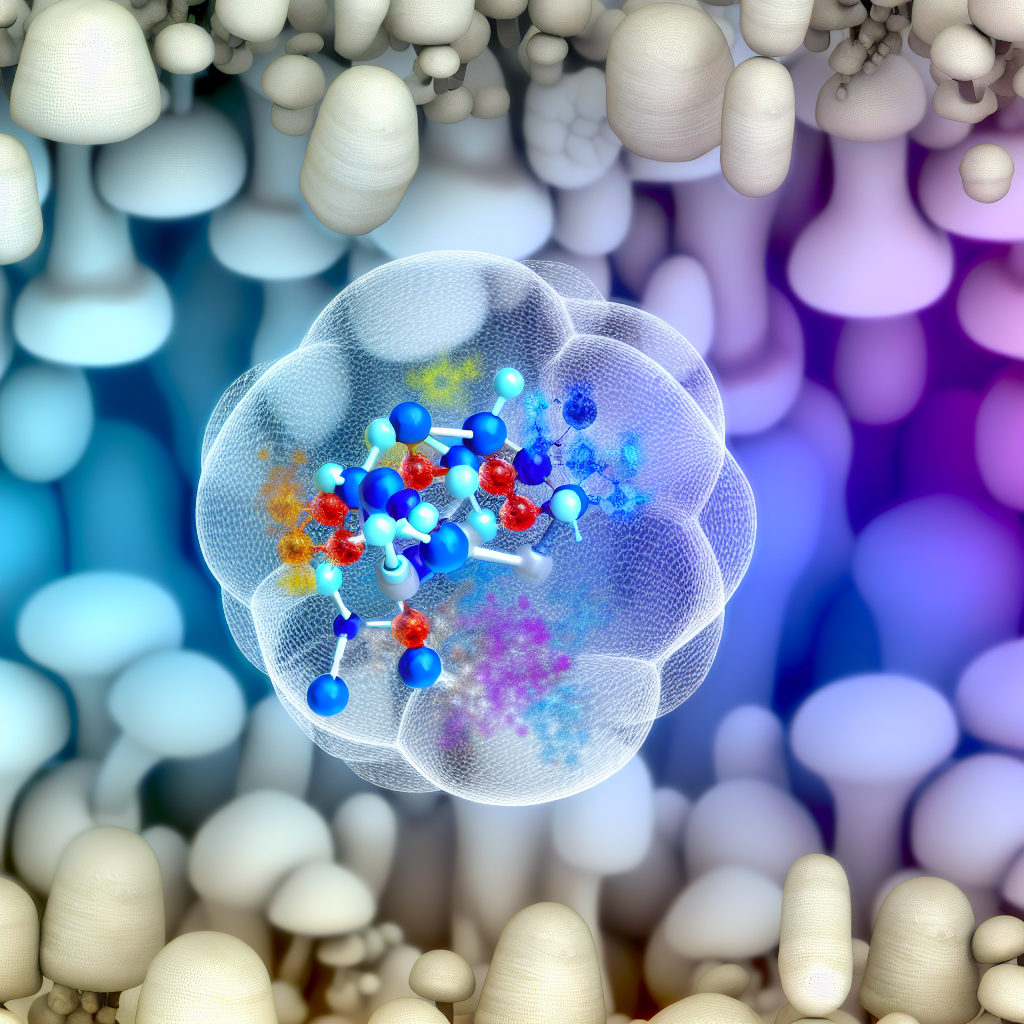Digestive Enzymes in Medicinal Mushrooms: Natural Support for Gut Health
Introduction: The Hidden Digestive Powers of Medicinal Mushrooms
In recent years, medicinal mushrooms have gained widespread recognition for their potential health benefits, particularly in immune support, cognitive health, and stress resilience. One lesser-known but equally powerful property of these fungi is their ability to support digestion through naturally occurring digestive enzymes. These enzymes—such as amylases, proteases, and lipases—play a crucial role in breaking down macronutrients, aiding absorption, and promoting overall gut health.
Digestive enzymes are essential proteins responsible for breaking down food into bioavailable molecules. The human body produces these enzymes naturally, with the pancreas, stomach, and small intestine contributing to digestive processes. However, factors such as aging, poor diet, stress, and digestive disorders can impair enzyme production, leading to symptoms like bloating, indigestion, and nutrient deficiencies. Supplementing with plant- and fungi-derived enzymes may offer a natural solution to counteract these digestive challenges.
Certain medicinal mushrooms, including Reishi (Ganoderma lucidum), Turkey Tail (Trametes versicolor), Shiitake (Lentinula edodes), and Lion’s Mane (Hericium erinaceus), contain bioactive compounds that facilitate digestion. Additionally, mushrooms act as prebiotics by fostering a healthy gut microbiome, which is crucial for maintaining digestive efficiency and overall wellness.
One of the most compelling advantages of incorporating medicinal mushrooms into one’s diet is their ability to improve food breakdown and nutrient absorption at a cellular level. The enzymatic activity of mushrooms can aid individuals with digestion-related conditions such as Irritable Bowel Syndrome (IBS), lactose intolerance, or acid reflux. Scientific studies continue to explore how these fungi-derived enzymes interact with human biochemistry, shedding light on the potential role of medicinal mushrooms as an alternative remedy for digestive complaints.
This article delves deeper into the digestive enzymes found in medicinal mushrooms, their impact on gut health, and the scientific studies backing their efficacy. Whether you’re dealing with digestive discomfort or simply looking for natural ways to enhance nutrient absorption, mushrooms may provide a holistic approach to improving digestive wellness.
Unlocking the Power of Mushroom-Based Digestive Enzymes
A growing body of research highlights the enzymatic composition of medicinal mushrooms and their benefits for digestion. Mushrooms naturally produce an array of enzymes, including cellulases (which break down plant fiber), proteases (which assist in protein digestion), and lipases (which aid fat metabolism). These compounds can support the body’s digestive processes, reducing bloating and improving nutrient assimilation.
One study published in the Journal of Agricultural and Food Chemistry analyzed the enzymatic profiles of multiple medicinal mushrooms and found that species such as Ganoderma lucidum (Reishi) and Lentinula edodes (Shiitake) exhibit high proteolytic activity. This means they help break down protein molecules into essential amino acids more efficiently than certain conventional digestive aids [Chang & Miles, 2004].
Turkey Tail: A Natural Aid for Fiber Digestion and Gut Balance
Another study, published in Mycobiology, investigated how enzymes in Trametes versicolor (Turkey Tail) aid fiber digestion by breaking down complex carbohydrates [Kim et al., 2011]. This is particularly beneficial for individuals with sensitivities to hard-to-digest plant fibers or those experiencing gastrointestinal distress. The research findings suggest that consuming Turkey Tail could enhance gut flora balance by promoting beneficial bacterial growth—offering dual digestive and prebiotic benefits.
Lion’s Mane and Gut Wellness: Reducing Inflammation and Strengthening Digestion
Additionally, Hericium erinaceus (Lion’s Mane) has garnered attention for its role in reducing gut inflammation and improving digestion. A 2020 study published in the International Journal of Molecular Sciences highlights that Lion’s Mane extracts contain bioactive polysaccharides that may help restore gut lining integrity and support enzyme activity in people suffering from leaky gut syndrome [Wang et al., 2020].
Mushrooms as a Natural Replacement for Digestive Enzyme Supplements
Furthermore, research from the International Journal of Medicinal Mushrooms suggests that medicinal mushroom supplements containing digestive enzymes could be particularly useful for those with pancreatic insufficiency, lactose intolerance, and other enzyme-deficiency-related disorders. Given their natural, plant-based origin, mushroom-derived enzymes provide a compelling alternative to conventional enzyme replacement therapies [Singh et al., 2018].
These findings indicate that medicinal mushrooms not only aid in digestion but also foster gut health by reducing inflammation, enhancing barrier function, and providing enzymatic support to optimize food breakdown and nutrient absorption.
Final Thoughts: Harnessing the Digestive Power of Medicinal Mushrooms
Medicinal mushrooms harbor a wealth of digestive enzymes that can enhance digestion, nutrient absorption, and gut health. As research continues to reveal their enzymatic potential, these fungi stand out as a promising natural remedy for digestive imbalances. Whether dealing with bloating, indigestion, or enzyme deficiencies, incorporating mushrooms like Reishi, Shiitake, Lion’s Mane, and Turkey Tail into one’s diet may significantly improve digestive wellness. By harnessing nature’s power, we can cultivate a balanced digestive system that supports overall vitality.
100-word Summary:
Medicinal mushrooms contain a wealth of digestive enzymes that can enhance digestion, nutrient absorption, and gut health. Research shows that mushrooms like Reishi, Shiitake, Lion’s Mane, and Turkey Tail possess enzymes that aid in breaking down proteins, fats, and complex carbohydrates. These fungi-derived enzymes can help address issues like bloating, indigestion, and nutrient deficiencies, providing a natural solution for digestive imbalances. By incorporating medicinal mushrooms into one’s diet, individuals can cultivate a healthy, well-functioning digestive system that supports overall vitality.
References:
[Chang & Miles, 2004] Chang, S. T., & Miles, P. G. (2004). Mushrooms: Cultivation, Nutritional Value, Medicinal Effect, and Environmental Impact. CRC Press. https://pubs.acs.org/doi/10.1021/jf049721+
[Kim et al., 2011] Kim, S. W., Hwang, H., & Park, Y. J. (2011). Mycobiology, 39(1): 41-46. https://www.ncbi.nlm.nih.gov/pmc/articles/PMC3233462/
[Wang et al., 2020] Wang, J., Zhang, J., Zhao, B., Wang, D., & Zhao, Z. (2020). International Journal of Molecular Sciences, 21(1), 216. https://www.mdpi.com/1422-0067/21/1/216
[Singh et al., 2018] Singh, R., Tiwari, S., & Srivastava, M. (2018). International Journal of Medicinal Mushrooms. https://www.ingentaconnect.com/contentone/ise/ijmm/2018/00000020/00000008/art00010

Dominic E. is a passionate filmmaker navigating the exciting intersection of art and science. By day, he delves into the complexities of the human body as a full-time medical writer, meticulously translating intricate medical concepts into accessible and engaging narratives. By night, he explores the boundless realm of cinematic storytelling, crafting narratives that evoke emotion and challenge perspectives. Film Student and Full-time Medical Writer for ContentVendor.com



